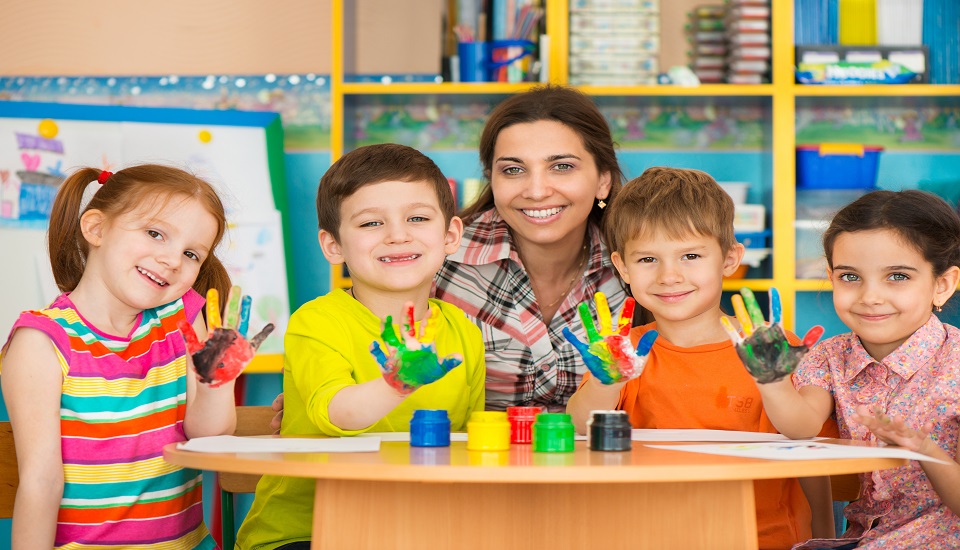7 Helpful Strategies For Helping Young Children With Self-Regulation
30th November 2022

“Self-regulation” is the skill that children should pursue and master because it will bring success in their careers in their life.
According to Montessori education, Emotional Quotient(EQ) development in a child is equally essential as Intelligence Quotient(IQ) development to lead a successful academic life and success in overall life.
This Montessori teaching technique was founded by Dr. Maria Montessori, she stresses over the fact that rather than enforcing harsh punishment and discipline. We must treat every children’s emotions with the utmost respect & take action according to it.
Maria Montessori also believes that every child is the “greatest marvel of nature”.
Therefore, after the discovery of this teaching method, it becomes more popular in modern-day parenting and in between aspiring teachers as well. Because this strategies for helping young children with self-regulation in this teaching method is quite unique and solution oriented.
Well, now, before knowing how to teach self-regulation strategies to your students, let us first know, what is Self-regulation? And why is it important?
What is Self-Regulation?
Self-Regulation is the skill which helps to monitor and regulate behaviors, emotions and thoughts in a way that helps to lead a better life. Behavioral regulation involves how a person reacts to a certain situation & what we should say or refrain to say in every situation.
Emotion regulation involves how to control our emotional states when we are feeling agitated, sad, or angry.
Thoughts regulation involves how one should bring focus in a stressful situation & how to resolve them.
Self-Regulation for Specially-abled children:
Generally, inheriting self-regulation in children is difficult but in the case of specially-abled children, it’s extra difficult. Because children who go through ADHD, learning disabilities, and autism, their brain development rates comparatively slow compared to other children and need a little more level of patience.
Why Self-Regulation is important?
Self-regulation helps your children socially, emotionally & in cognitive behavior in numerous ways-
- Being able to focus properly in the classroom to understand the lessons.
- Behave appropriately in the social environment by controlling their anger and agitated feelings and acting calmly.
- Being able to build friendships with others.
- Being able to think properly and take the right decisions in a stressful situation.
Till now we understood what self-regulation is &why is it important? Now, let’s get to know our helpful strategies for helping young children with self-regulation:
1. Keep a check on your temper:
Generally, parents have a lot of responsibilities to fulfill, so it’s normal to get stressed. So before dealing with your children remind yourself that you must deal with your child with a cool head, so that they feel comfortable around you rather than be scared.
2. Become their cheerleader:
For every child, parents and teachers are their superheroes, so make sure you understand them, show care and support to them. Try to show some genuine interest in them by becoming their mentor of life so that they feel valued. Using this method will develop your students’ self-regulation each and every day with time.
3. Get on the same level with them:
It’s just human psychology that, if a person is bigger who standing next to you then you may feel scared & hesitant. This feeling is in your child as well, so if you want to say anything to your child then just get on the same level as your children by kneeling down to make them comfortable.
4. Put yourself in your students’ shoes:
Child psychology works differently than adult psychology. What excites or make them happy the most, you may not feel the same. For example, children love playing in a park, but adults don’t have that same level of excitement. So, get yourself down on the level of a child’s emotions and try to look at things from their perspective & then react. It will definitely help your students to self-regulate their emotions.
5. Helps them to become consistent:
Let your students know what’s to expect from them by making a whole day routine, ask parents to make a balanced diet for them and consistent sleeping time. If children know what and when to do, then their stress level is reduced and regulate their emotions well, which ultimately develops your students’self-regulation.
6. Let them have fun time:
Let them play both indoor and outdoor games of their own choice, be with them but let them figure out how to learn any games or sports. Give them at least 2-3hrs of unstructured playtime.
7. Help them to build a winner mindset:
It’s quite natural to not get the desired result always when we put in the hard work into any task. Therefore, from now on encourage your students by making them realize failure is just a learning opportunity and if they’re consistent enough they’ll surely emerge as a winner. This attitude will help your children to embrace positive emotions.
To End With:
As Dr. Maria Montessori said that every child is the “greatest marvel of nature”. So, understand your students’ needs and emotions, which will definitely help your child to become the greatest marvel of nature.
All parents and teachers need to do is be attentive, and caring, show affection. We hope our helpful strategies for helping young children with self-regulation will help you. For upcoming aspiring teachers, we suggest our Online Montessori Teacher Training Courses in Singapore, to get more insights about this method of teaching.
Looking for earning a Montessori training certification? If yes then call us at +65-3163-1068 or +91 6292146549. Chat with our expert if you have any questions or send us an email at info@ctpdasia.com to find out more.
Written By : Abhishek










